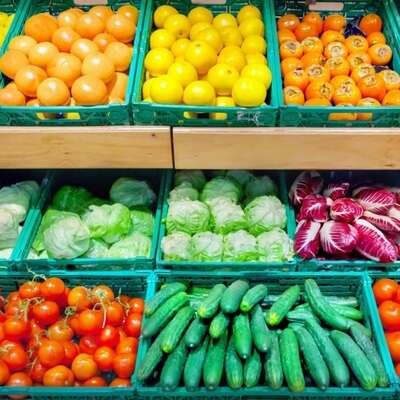Francesca d’Arcangeli and Cornelia Tänzler on current events and consumer behaviour in the food industry.
A companion piece to Leadership Series, The Boyden View brings the perspectives of in-house experts from Boyden offices around the world into the conversation. For a deeper dive into the subject matter, read the full Leadership Series interview with Tara McCarthy, CEO of Bord Bia - The Irish Food Board.
Francesca d’Arcangeli is the Global Leader of Boyden’s Industrial Practice and a Managing Partner of Boyden United Kingdom.
Cornelia Tänzler is the Global Leader of Boyden’s Consumer & Retail Practice and a Managing Partner of Boyden Switzerland.
What are companies doing to tackle the response to COVID-19?
d’Arcangeli: The power of the collective and of working together for a common benefit are very much highlighted in challenging times. The benchmark work of the Irish Food Board is an example of how jointly understanding the risks and setting a common framework will strengthen resilience and the ability to navigate significant changes in working patterns.
In the face of COVID-19, the whole food chain is having to work together and make collaborative decisions rather than working in isolation. Decisions like having two types of ketchup on store shelves rather than 15, or producers focusing plant output on other products, or having a flexible workforce that can move from truck-driving to stacking shelves will test crisis management and contingency plans and drive a joint approach for survival.
What are the key trends you are seeing in the food and beverage industry?
d’Arcangeli: As consumer behaviours become more purpose driven and ethically focused, the move from global to local and the emergence of new companies with innovation across product, packaging and distribution have driven new ways of thinking in the larger players.
As regulation moves to keep up and REACH standards for example are implemented internationally, the dependency and interlinks between all aspects of the supply chain to the end product are clearer and clearer. Each individual cog in the supply chain has a shared responsibility and are increasingly interlinked – from the carbon black that goes into inks to the plastics in the carton to the fertilizer in the grass that the cow eats. The differentiation between sectors is less and less.
Tänzler: The growth of alternative products will also continue, especially when it comes to offering alternatives to meat and dairy products. There is an expectation that food and beverage companies should better respond to local culture, social norms and consumer habits, and increase local production to align with environmental priorities and reduce delivery times. Being accessible, local and clean is becoming more important.
The ethical or eco-provenance of products is increasingly important to consumers, as well as the desire to purchase niche, non-mainstream brands. Shoppers have also become more discerning about where they buy and there is a shift away from international retail chains toward local stores.
Which skills are most in demand today at the senior executive and board levels?
d’Arcangeli: Being able to demonstrate high levels of resilience, solution-based thinking, and the ability to empower and engage across the organization to foster innovation and loyalty are key skills in senior leadership.
Tänzler: The digital evolution has created significant structural and technological changes impacting consumer behaviour. Leaders capable of steering businesses through this digital-first landscape must be highly data driven, adaptive, innovative and analytical, with competency in navigating a multichannel environment. In the race to gain more digital maturity, consumer product companies are increasingly hiring external tech talent.
However, this isn’t enough. Companies can’t rely exclusively on new hires to fill the skill gaps. As automation and AI impact every function and level of the business organization, companies also need to help their current employees acquire skills that are in alignment with the expected shifts in job profiles.
How can food and consumer goods companies compete with tech and other sectors to recruit younger management talent?
d’Arcangeli: Maintaining high levels of skills and capability training, best practice management and leadership techniques will be key in attracting younger talent. It’s also important, now more than ever, to ensure the purpose and mission of the organization are well communicated and apparent right through to the shop floor.
Tänzler: To attract top younger digital talent, consumer product companies today develop non-traditional strategies, for instance recruiting through communities or incentivizing internal referrals to benefit from the networks of current employees.
Retaining top talent is equally critical and the greatest challenge. To increase the chances of retaining in-demand tech talent, companies must offer enough opportunities for development, as well as salaries, benefits and incentives that are competitive with those offered by tech companies.
What are the key issues for organizations today?
d’Arcangeli: Maintaining trust through a strong reputation is key. As highlighted by Tara at the Irish Food Board, trust is delivered through transparency on all aspects across the supply chain, which is ultimately proven through data. Sustaining this trust is an imperative and demanding it of all partners will enable organisations and brands to succeed and for some – to survive.


